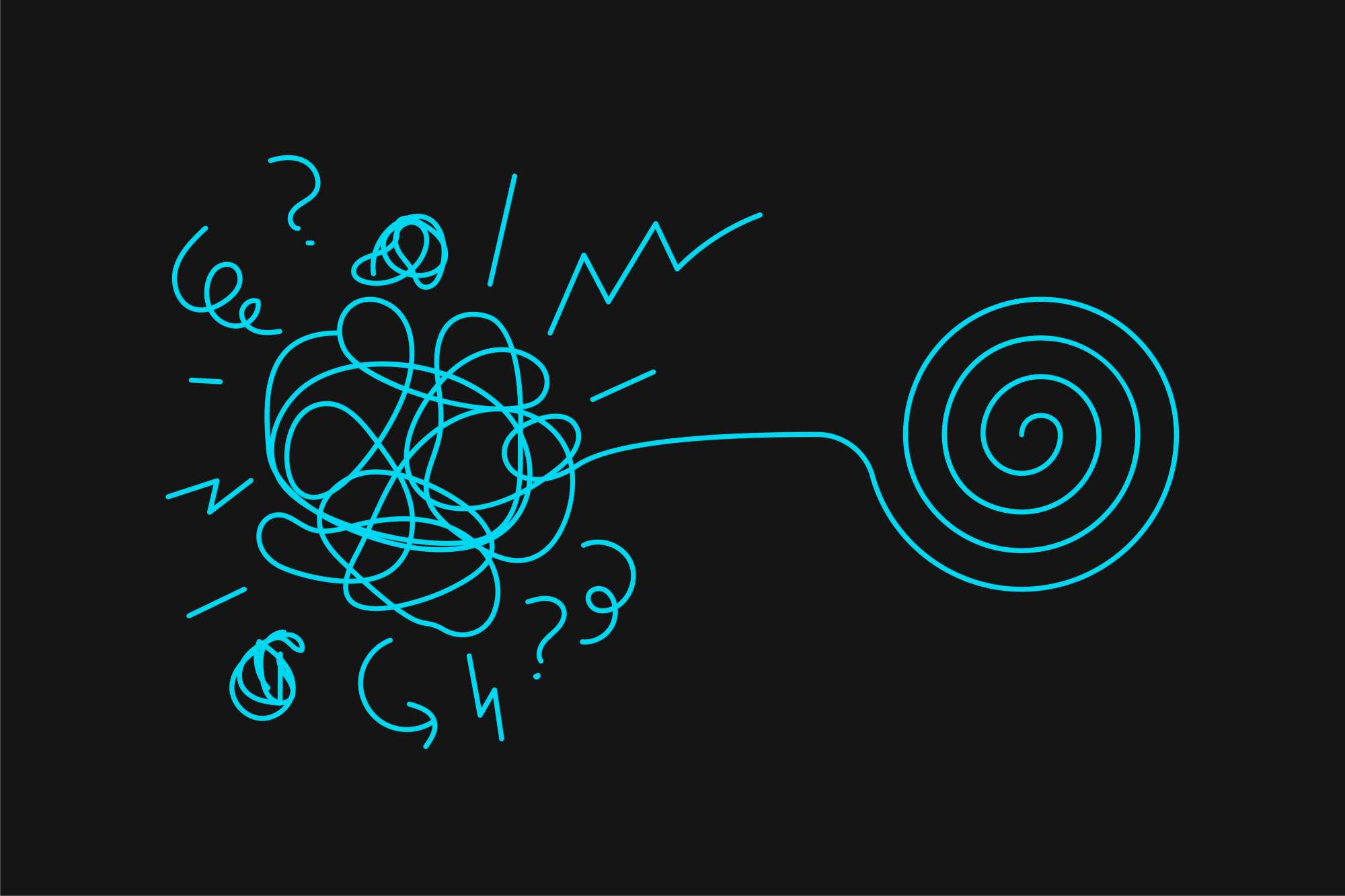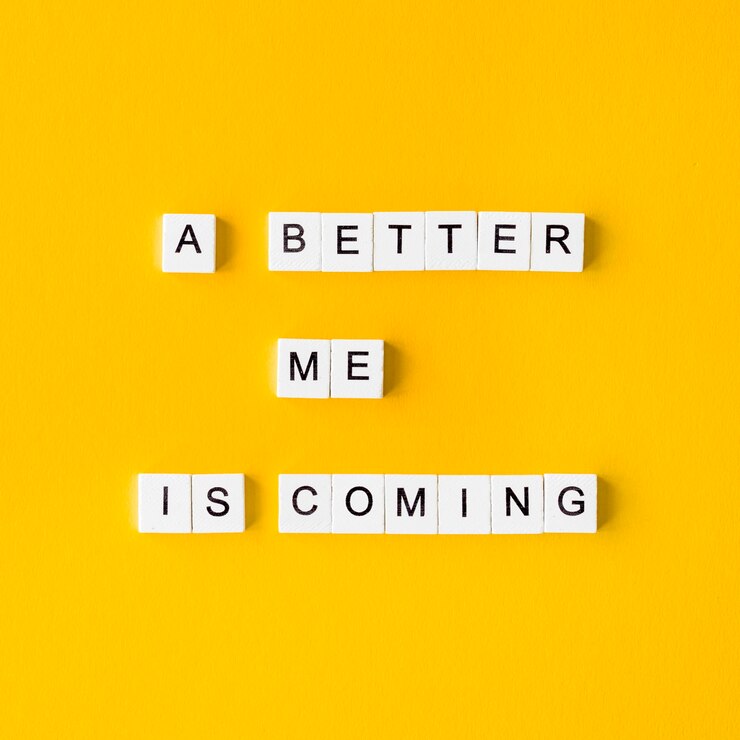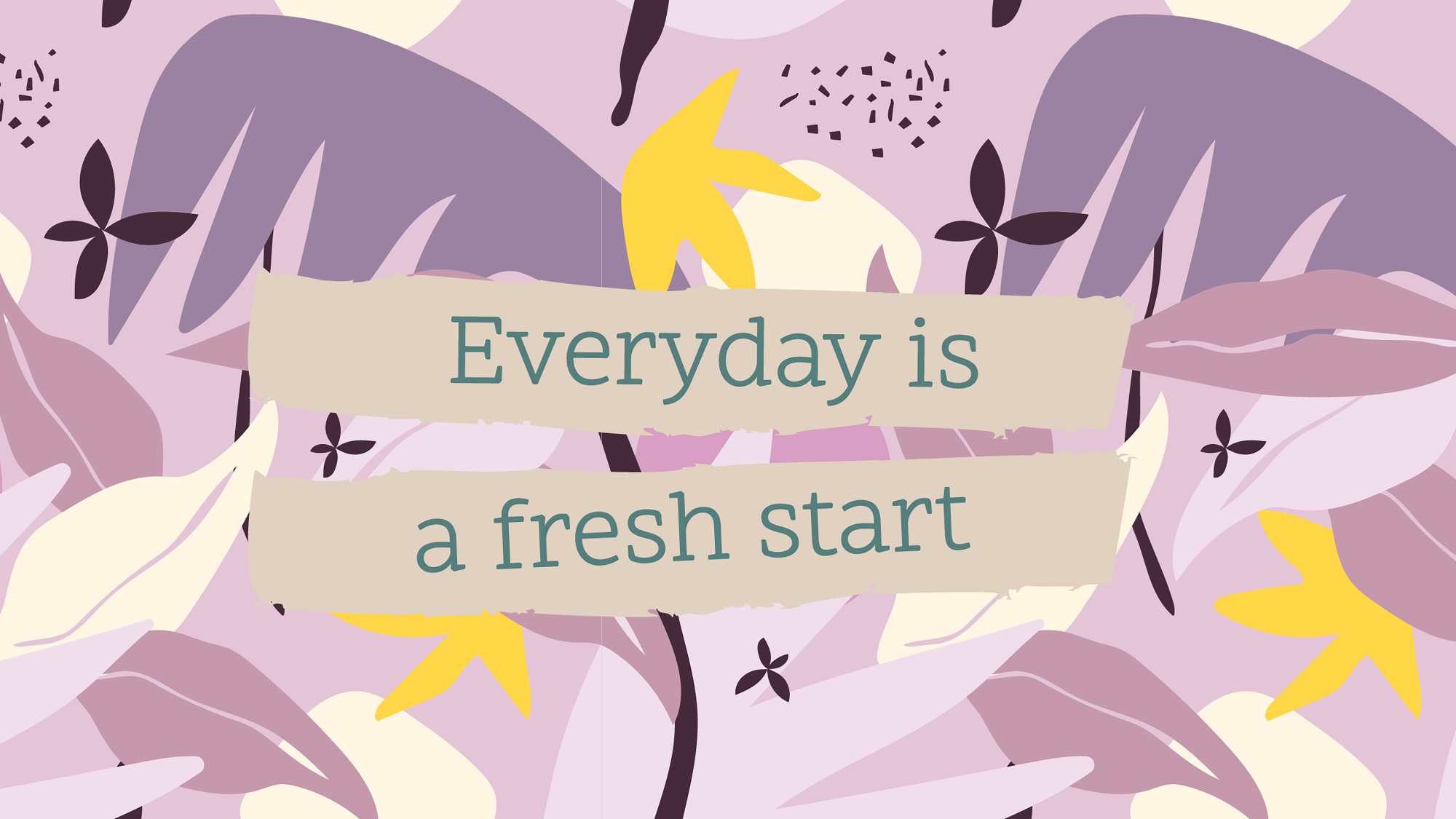The high cost of ‘what if’: How overthinking steals your time, energy, and confidence
You know when you spend three hours thinking about a decision that would literally take five minutes to just do? Or when you’re lying in bed, replaying imaginary conversations with people who probably haven’t thought about you all day? Or when you rewrite the same email so many times that you forget what you even wanted to say in the first place?
That’s overthinking and it’s costing you way more than you realize.
Not in some vague “mental health” kind of way, but in real, measurable ways that quietly eat away at your time, energy, and confidence while you’re busy being stuck in your head.
Every hour spent overanalyzing is an hour not spent actually living.
Every “what if” loop drains your mental energy like a leaky faucet.
Every time you delay action because you’re “not ready yet,” you take away from your own self-trust.
Overthinking isn’t harmless – it’s expensive. So let’s take a closer look at what it’s really costing you. Because once you see the price tag, it gets a lot harder to keep trading your peace of mind for thoughts that go absolutely nowhere.
Why are smart people overthinking the most
If you’re an overthinker, you’ve probably been told to “just stop thinking so much” by someone who clearly doesn’t understand how your brain works. But the thing is that overthinking isn’t a character flaw. It’s not weakness or laziness or self-sabotage.
It’s your brain trying to protect you.
Your mind is doing what it evolved to do – scanning for threats, planning for danger, trying to control outcomes. The problem is, modern life doesn’t have the same threats our ancestors faced. You’re not running from predators. You’re sending an email. Having a difficult conversation. Making a decision about your career.
But your brain doesn’t know the difference between physical danger and social risk. So it treats everything like a threat that needs to be analyzed, planned for, and controlled.
And here’s where it gets interesting – the smarter you are, the more tools your brain has to overthink. You can imagine more scenarios. Consider more variables. See more ways things could go wrong.
Your intelligence becomes the weapon your anxiety uses against you.
You’re not overthinking because you’re broken. You’re overthinking because you’re trying to create certainty in a world that doesn’t offer any. You’re trying to control outcomes by controlling your thoughts.
But it’s not working. And it’s costing you everything.

The real price you’re paying
Time: The hours you’ll never get back
Think about how much time you’ve spent this week overthinking. Lying awake at night replaying conversations. Spending an hour deciding what to say in a two-sentence text. Researching every possible angle of a decision until you’re paralyzed. Circling the same thought over and over without reaching any conclusion.
Add it up. Conservatively, how many hours? Five? Ten? Twenty?
Now multiply that by 52 weeks. That’s how many hours a year you’re trading for thoughts that lead nowhere.
Overthinking feels productive. It feels like you’re working through something, preparing, being thorough. But you’re not moving forward. You’re running in place, burning hours you could be spending on things that actually matter.
Every hour spent overthinking is an hour not spent creating, building, connecting, or living.
Energy: The exhaustion that never ends
Have you ever noticed how exhausting it is to do nothing but think?
You haven’t physically done anything demanding. You’ve just been sitting there. But you’re drained. Depleted. Like you just ran a marathon in your mind.
That’s because overthinking is one of the most energy-intensive things your brain can do. Every loop of analysis, every spiral of worry, every replay of that embarrassing moment from 2018 – it all burns through your mental resources.
And unlike physical exhaustion that gets better with rest, mental exhaustion from overthinking doesn’t go away when you stop. It follows you. It makes everything harder. It makes decisions feel impossible. It makes simple tasks feel overwhelming.
You wake up tired. You go through your day in a fog. You can’t focus on what’s in front of you because your brain is still processing seventeen other things simultaneously.
Confidence: The self-trust you’re destroying
Every time you overthink, you’re teaching yourself that you can’t trust your own judgment. Think about it. When you second-guess every decision, replay every conversation, question every choice – what message are you sending to your subconscious?
“I don’t trust myself to handle this.”
“I need more information before I can decide.”
“What if I’m wrong?”
Over time, this becomes your default. You stop trusting your instincts. You stop believing in your ability to figure things out as you go. You need external validation, more data, perfect conditions, guaranteed outcomes before you’ll take action.
And the cruel irony? The more you overthink to avoid making mistakes, the more you erode the confidence you need to make any decision at all.
You’re not protecting yourself from failure. You’re guaranteeing it by never starting.

The nighttime spiral: When overthinking steals your sleep
You know that special kind of torture that happens at 2 AM? You’re finally lying down after a long day. Your body is exhausted. The lights are off. Everything is quiet. And then…
Your brain decides NOW is the perfect time to:
- Replay that slightly awkward thing you said in the meeting three days ago.
- Plan for seventeen different disasters that will probably never happen.
- Solve problems you have zero control over.
- Remember every embarrassing moment from the past decade.
- Wonder if that person who said “sounds good” instead of “sounds great” secretly hates you.
Medical experts recognize this pattern as one of the most common and frustrating symptoms of chronic overthinking. Your nervous system is so activated from a day of mental loops that it literally can’t shut down when your body needs sleep.
The overthinking-insomnia loop works like this:
- Overthinking during the day keeps your nervous system in constant alert mode.
- When you try to sleep, your brain is still scanning for threats and problems to solve.
- Lying awake gives your mind even more time to spiral without distraction.
- Sleep deprivation makes your emotional regulation worse the next day.
- Poor emotional regulation makes overthinking more intense.
- More intense overthinking makes sleep even harder.
Round and round it goes. Each sleepless night makes the next one more likely.
Why your brain attacks at night
During the day, you have distractions. Work, conversations, errands, scrolling your phone. Your overthinking is there, but it’s competing with other inputs for your brain’s attention.
But at night? There’s nothing to distract you from your thoughts. No emails to answer. No tasks to complete. No social interactions to navigate.
So your brain, which has been in threat-scanning mode all day, continues doing what it’s been practicing – looking for problems, imagining worst-case scenarios, and trying to control outcomes by thinking about them endlessly.
It’s not that your problems get worse at night. It’s that your ability to manage your response to them disappears when you’re tired and there’s nothing else demanding your attention.
The trap of “just try to relax”
You’ve probably been told to “just relax” or “clear your mind” before bed. Maybe you’ve tried meditation apps, breathing exercises, or progressive muscle relaxation.
And maybe they helped a little. Or maybe they made things worse because now you’re lying there thinking: “I’m supposed to be relaxing. Why can’t I relax? Now I’m stressed about being stressed. Great.”
Here’s what most sleep advice gets wrong – it treats nighttime overthinking as a sleep problem when it’s actually an all-day-long thinking pattern problem.
Scheduled “worry time” and bedtime relaxation routines can help manage symptoms. But if you’re spending all day training your brain to overthink, expecting it to suddenly stop at 10 PM because you took a warm bath is like expecting a dog that’s been barking all day to be silent the moment you turn off the lights.

What actually stops the nighttime spiral
The real solution isn’t about what you do at night. It’s about changing how your brain operates all day long. When you break the daytime overthinking patterns, nighttime thoughts naturally quiet down. Your nervous system doesn’t stay activated all day, so it can actually settle at night.
Here’s what that looks like in practice:
During the day:
- You catch yourself replaying conversations and consciously redirect: “This already happened. I can’t change it. I’m thinking about right now instead.”
- When “what if” scenarios start building, you interrupt them: “I don’t need to solve problems that don’t exist yet.”
- You set boundaries on how long you’ll spend analyzing decisions: “I’ll think about this for 20 minutes, gather the information I need, and then I’m making a choice.”
The result at night: Your brain isn’t carrying seventeen unresolved thought loops into bed with you. It’s not in constant alert mode scanning for threats. It’s practiced shutting down overthinking all day, so shutting down at night becomes natural.
The 3-2-1 evening reset
If you’re currently stuck in the nighttime overthinking trap, here’s a bridge technique while you work on the deeper patterns:
Three hours before bed: No more problem-solving, planning, or heavy decision-making. You’re done working on complicated things for today. Whatever didn’t get solved today gets picked up tomorrow.
Two hours before bed: Digital sunset. Screens off (or at least put away the ones that trigger overthinking – work email, social media comparison scrolling, news that makes you spiral). Your brain needs time to calm down from the dopamine hits and information overload.
One hour before bed: Body-focused activities only. Shower, stretch, read fiction (not self-improvement books that make you think about everything you need to fix), prep for tomorrow in purely practical ways (lay out clothes, set up coffee maker – tasks that require zero mental analysis).
This isn’t about forcing yourself to relax. It’s about giving your overstimulated brain a runway to land instead of expecting it to drop from 10,000 feet to zero the second your head hits the pillow.
When the thoughts come anyway
Even with better daytime patterns and evening routines, you’ll still have nights when your brain won’t shut up. That’s normal. You’re not failing when this happens. When you’re lying awake and the thoughts are racing, don’t fight them. Fighting thoughts makes them stronger. Instead:
Name what’s happening: “My brain is overthinking again. This is what it does when my nervous system is activated.”
Acknowledge without engaging: “Yes, that’s a thought I could think about. But I don’t need to think about it right now.”
Redirect to something concrete: Count backwards from 300 by 3s. List every country you can think of alphabetically. Name every teacher you’ve ever had. Your brain needs something to do that isn’t spiraling.
Get up if you need to: If you’ve been awake for more than 20 minutes, get out of bed. Lying there creates an association between your bed and anxiety. Do something boring and non-stimulating until you feel sleepy, then try again.
The long game
Breaking the nighttime overthinking spiral isn’t about finding the perfect bedtime routine or the right meditation app. It’s about training your brain during the day to stop treating every thought like an emergency that requires immediate analysis.
When you change how you think during your waking hours, sleep stops being a battlefield where you fight your own mind. The racing thoughts at 2 AM aren’t a separate problem from the overthinking you do at 2 PM. They’re the same pattern. Fix the pattern, and both the days and the nights get easier.
Your brain isn’t broken for thinking at night. It’s just doing what you’ve trained it to do all day long – scanning for threats, imagining disasters, trying to control the uncontrollable. It’s time to teach it something different.

The decision paralysis trap
You’re staring at a restaurant menu. It’s been twelve minutes. Your friends have already ordered. The server has come back twice. And you still can’t decide between the salmon and the chicken.
It’s just dinner. But your brain is treating it like a life-or-death choice.
What if the salmon is overcooked? What if you regret not getting the pasta? What if everyone else’s food looks better than yours? What if you order wrong and ruin the whole evening?
Welcome to decision paralysis – where overthinking turns every choice into an impossible puzzle. The good news? You can train yourself to make decisions more confidently. Learn specific strategies in our guide: Why you can’t make decisions and how to break free from decision paralysis.
When “just pick one” feels impossible
The restaurant menu is annoying but harmless. But this same pattern plays out in decisions that actually matter:
You’ve been “thinking about” changing careers for three years. You’ve made pros and cons lists. You’ve researched salary ranges. You’ve talked to people in the field. You’ve read seventeen books about finding your purpose. And you’re still stuck in the exact same job, no closer to a decision than you were when you started.
You spend forty-five minutes choosing what to watch on Netflix and end up choosing nothing because the options overwhelm you.
You’ve been meaning to start therapy but can’t decide which therapist to see, so you’ve seen none of them.
You want to start working out but can’t commit to a gym because what if you pick the wrong one?
The problem isn’t that these decisions are actually complicated. The problem is that your brain is analyzing them to death.
Why more options make it worse
You’d think having more choices would make decisions easier. It doesn’t. It makes them exponentially harder.
Research on choice overload shows that when people are presented with too many options, they either delay deciding indefinitely or make worse decisions because they’re overwhelmed. Your brain literally can’t process unlimited possibilities effectively.
But here’s what makes overthinking worse than normal decision fatigue – you’re not just overwhelmed by the options in front of you. You’re creating additional imaginary options and worst-case scenarios that don’t even exist.
You’re not choosing between three gyms. You’re choosing between three gyms PLUS all the ways each one could be wrong PLUS what it says about you as a person PLUS how you’ll feel six months from now PLUS what everyone will think PLUS seventeen contingency plans.
No wonder you can’t decide.
The cost of choosing nothing
While you’re busy weighing every possible angle, time passes. Opportunities close. Other people make moves. Life continues without your participation.
The career change you’ve been considering for three years? Someone else spent that time retraining, building skills, making connections, and they’re now established in the field you’re still researching.
The relationship you keep analyzing instead of committing to? It ended because your inability to decide felt like a lack of care.
The business you’ve been planning for two years? Someone else launched an imperfect version six months ago and is already building on it using real customer feedback.
Decision paralysis feels like careful consideration. It’s actually just a sophisticated form of avoidance.
The truth about “wrong” choices
Your overthinking brain doesn’t want you to know that most decisions aren’t actually permanent, and most “wrong” choices are easily correctable. Don’t like the salmon? Order something different next time. Hate the gym you chose? Switch gyms. Realize the career change wasn’t right? You can change again.
The only truly wrong choice is choosing nothing while you wait for perfect certainty that will never come.
Your brain is trying to protect you from regret by preventing you from choosing. But it’s creating a worse outcome – the regret of never trying anything at all.

The conversation replay loop
The conversation ended four hours ago. You’re still having it. Except now you’re having it with yourself, replaying every word, analyzing every pause, dissecting every facial expression, convinced you said something wrong.
“Why did I say that? That sounded so awkward.”
“Did they seem annoyed when I interrupted? I definitely interrupted.”
“They laughed at my joke but was it a real laugh or a pity laugh?”
“I should have asked about their project. Now they think I’m self-centered.”
“That comment about their weekend probably came across as judging them.”
Meanwhile, the other person has completely forgotten the conversation ever happened and is living their life without giving it a second thought.
The mental replay that never stops
Conversation replay is one of the most exhausting forms of overthinking because it combines several painful elements:
You’re reviewing something you can’t change. The conversation is over. It exists in the past. No amount of analysis will alter what was said or how it landed.
You’re imagining other people’s thoughts. You have zero actual access to what they’re thinking, but your brain fills in the blanks with the worst possible interpretations.
You’re creating problems that don’t exist. In most cases, the “issue” you’re obsessing over isn’t actually a problem for the other person. You’re manufacturing conflict out of thin air.
You’re keeping yourself in a state of social anxiety. The more you replay and analyze, the more anxious you become about future interactions, which makes you more likely to overthink those too.
How this destroys your relationships
When you spend hours analyzing every conversation, you’re not being thorough or socially aware. You’re creating distance.
You start avoiding people you’ve decided are “upset with you” based on evidence that exists only in your analysis of their tone. You withdraw from friendships because you’ve convinced yourself you’re annoying or awkward, even though they keep reaching out to you.
You send follow-up texts apologizing for things the other person didn’t notice or care about, which actually creates the awkwardness you were trying to prevent. You become so self-conscious in conversations that you can’t be present because you’re too busy monitoring yourself for potential mistakes.
Real connection requires presence. Overthinking robs you of that.
Why you’re solving problems that don’t exist
Your brain thinks replaying conversations is helpful. It believes that by analyzing what went wrong, you can prevent future social mistakes. But iyou’re actually inventing problems so your anxiety has something to solve.
That slightly different tone in their voice? Probably nothing. They said “sounds good” instead of “sounds great”? They’re literally the same sentiment. They took three hours to text back? They were busy living their life, not crafting a message about how they feel about you.
You’re not solving relationship problems with all this analysis. You’re creating them.
The conversation you should be having
Instead of replaying the conversation with yourself, trying to decode hidden meanings and imagined slights, try this revolutionary approach: if you’re genuinely concerned something went wrong, have an actual conversation about it.
“Hey, I felt like things were a bit off during our conversation yesterday. Is everything okay?”
Nine times out of ten, they’ll have no idea what you’re talking about because nothing was actually wrong. And that tenth time when something was actually wrong? Now you have real information instead of imagined disasters, and you can address the actual issue instead of the one you invented.
Stop rehearsing conversations that already happened. Start being present for the ones that are actually happening now.

The research rabbit hole
You need to buy a coffee maker. A simple, straightforward purchase.
Six hours later, you’re deep into Reddit threads comparing the thermal retention of stainless steel versus glass carafes, reading reviews from 2019 about a model that’s been discontinued, watching YouTube videos about grind consistency, and researching whether spending $300 on a coffee maker is “worth it” or if you should just get the $40 one.
You haven’t bought a coffee maker. You’ve obtained a PhD in coffee maker theory. This is the research rabbit hole, and it’s costing you way more than money.
Perfectionism and overthinking are close companions. If you’re stuck researching because nothing feels ‘ready yet,’ our article on how to take imperfect action will help you finally start moving forward.
When “being thorough” becomes procrastination
There’s a difference between doing reasonable research and falling into an endless information spiral.
Reasonable research looks like: Reading a few reviews, comparing 2-3 options, making a decision within an hour.
The rabbit hole looks like: Reading 47 articles, comparing 23 options, creating a spreadsheet, asking seven friends for their opinions, joining a Facebook group about coffee makers, still not buying anything three weeks later.
Your brain tells you this is “being smart” or “making an informed decision.” But in reality you’re using research as a way to delay taking action.
Because as long as you’re still researching, you haven’t made a choice yet. And if you haven’t made a choice, you can’t make the wrong choice.
Why research feels safer than doing
Research feels productive. You’re learning things! Gathering information! Being thorough!
But productive would be buying a coffee maker and making coffee. What you’re actually doing is avoiding the discomfort of commitment.
This pattern shows up everywhere:
You’ve been “researching” starting a business for two years – reading books, taking courses, following entrepreneurs on social media – but you haven’t served a single customer or made a single sale.
You spend hours researching the “perfect” morning routine instead of just trying a simple routine for a week and adjusting based on how it feels.
You’ve read everything about writing, but you haven’t written anything substantial because you’re still “learning the craft.”
You watch endless tutorials about productivity systems instead of actually organizing your actual life.
The research never ends because there’s always one more article, one more expert opinion, one more piece of information that might be the key to making the “perfect” choice.
Perfectionism disguised as preparation
This is where the research rabbit hole reveals its true nature – it’s not about being thorough. It’s about avoiding the risk of being imperfect.
If you’re still researching, you can’t be judged for making the wrong choice. If you’re still learning, you can’t be criticized for doing it badly. If you’re still preparing, you can’t fail at the actual thing.
People who demand perfection before starting often never start at all. They’re so afraid of doing something imperfectly that they stay perpetually in the “preparation” phase.
But no amount of research will prepare you for the experience of actually doing the thing.
You can research coffee makers for six months, and you still won’t know which one is right for you until you’re actually making coffee with it every morning. You can study business strategy for years, and you still won’t understand your market until you have real customers. You can read about writing forever, and you still won’t develop your voice until you write thousands of imperfect words.
When learning becomes a substitute for doing
The research rabbit hole is sneaky because it feels like self-improvement.
You feel like you’re getting better because you’re consuming so much information. But consuming information isn’t the same as developing skill. Reading about fitness doesn’t make you fit. Watching videos about confidence doesn’t make you confident. Studying productivity doesn’t make you productive.
Competence comes from doing, not from researching how to do.
Every hour you spend researching is an hour not spent practicing. Every article you read is time not spent getting actual feedback from actual experience. Every course you take is delaying the moment when you’ll discover what actually works for you through trial and error.
The person who read one article and started practicing is now miles ahead of the person who read 100 articles and never began.
The research exit strategy
Set a time limit. Give yourself two hours maximum to research any decision that isn’t life-altering. When time’s up, make the best choice you can with the information you have.
Ask: “Will more research actually change my decision?” If you’ve already gathered the basics, more information usually just creates more confusion.
Remember – most choices are reversible. Don’t like the coffee maker? Return it. Business approach isn’t working? Change. Routine doesn’t fit? Adjust it.
Stop researching how to start. Just start, and learn as you go. The clarity you’re seeking doesn’t come from one more article. It comes from taking action with imperfect information and adjusting based on real experience.
Close the 47 tabs. Buy the coffee maker. Start the thing.

The illusion of progress
Overthinking is so dangerous because it feels productive.
When you’re analyzing a situation from every angle, considering every possibility, planning for every outcome – it feels like you’re doing something. Like you’re being smart. Thorough. Responsible.
But you’re not solving problems. You’re rehearsing fear. You’re not preparing for challenges. You’re imagining disasters. You’re not making progress. You’re avoiding action.
You’ve spent six months “researching” starting a business – reading books, watching videos, comparing strategies, planning the perfect launch. Someone else spent those same six months building an imperfect business, getting real customers, making actual money. Guess who has a business?
You’ve been “working on” that creative project for two years – tweaking, reconsidering, waiting for the right time, perfecting the concept in your head. Someone else shipped something messy six months ago and has already iterated three times based on real feedback. Guess who’s further along?
Overthinking is procrastination in disguise. It’s the permission you give yourself to delay doing the hard thing by convincing yourself you’re “not ready yet” or “need to think it through more.”
But you’ll never think your way to certainty. You’ll never analyze your way to perfect confidence. You’ll never plan away all the risk. The clarity you’re waiting for doesn’t come from more thinking. It comes from taking action with the information you have.
Real progress comes from action, not endless planning. Learn how to shift from thinking to doing with the 1% productivity rule, which shows you how tiny improvements compound over time.
How overthinking destroys your life in ways you don’t see
The costs of overthinking don’t stop at time, energy, and confidence. They infiltrate every area of your life.
Your relationships suffer. You see “K” instead of “OK” and spend two hours convinced they hate you. You dissect a slightly different tone in their voice and create an entire narrative about what you did wrong. They said “sounds good” instead of “sounds great” and now you’re spiraling about whether the friendship is ending. You replay a conversation from three days ago, analyzing every word, every pause, convinced you said something offensive – when they’ve already forgotten the whole exchange. You withdraw because you’ve decided they’re upset with you based on evidence that exists only in your head. Meanwhile, they’re living their life, completely unaware you’ve written them an entire emotional script they never auditioned for.
Opportunities pass you by. While you’re thinking about whether you’re qualified enough, someone else applied. While you’re planning the perfect moment to speak up, the moment passes. While you’re considering all the ways it could fail, someone else is already trying.
Your work stagnates. You don’t ship because it’s not perfect. You don’t start because you haven’t figured out every step. You don’t share because what if people criticize it? So you stay stuck, working on the same things endlessly without ever moving forward.
Your mental health deteriorates. Constant overthinking feeds anxiety. Creates depression. Keeps you trapped in your head instead of present in your life. You’re living more in imagined futures and replayed pasts than in the actual moment you’re in.
You’re not living. You’re simulating life in your head while it passes you by in reality.
Need a mental reset when overthinking takes over? These focus affirmations for distracted minds can help you redirect your thoughts.

From ‘what if’ to ‘what now’
The good news? You don’t need to stop thinking altogether. You just need to redirect that mental energy from endless loops to purposeful action.
Ask: What’s actually in my control?
Most of what you’re overthinking is completely outside your control. What someone else thinks. Whether you’ll fail. How things will turn out.
The only thing you control is what you do next.
So when you catch yourself spiraling, stop and ask: “What’s one thing I can actually control in this situation right now?”
Then do that thing. Just one action. One step forward.
Set a decision deadline
Overthinking thrives when you give it unlimited time. Cut it off.
Give yourself a specific timeframe to think about something. Ten minutes. An hour. By the end of today. Whatever makes sense for the decision.
When the time’s up, you make the choice with whatever information you have. No extensions. No exceptions.
You’ll be shocked how often “good enough” decisions work out just fine.
Replace ‘what if I fail?’ with ‘what if I learn?’
Your brain is wired to focus on worst-case scenarios. That’s the overthinking trap.
Flip it. For every “what if it goes wrong,” counter with “what if it goes right?” Or better yet, “what if I learn something valuable either way?”
Failure isn’t the opposite of success. Inaction is.
Take the smallest possible action
Overthinking makes everything feel massive and overwhelming. Break it down so small that action becomes easier than continuing to think.
Don’t write the whole email. Write one sentence. Don’t plan the entire project. Do the first step. Don’t figure out your whole life. Just decide what’s next.
Action breaks the loop. Every time.
The power you’re wasting on worry
Here’s what I want you to understand: all that mental energy you’re pouring into overthinking? That’s not a weakness. That’s unused power.
You have the ability to analyze, consider, plan, and imagine. Those are gifts. The problem isn’t that you think – it’s that you’re directing that thinking toward worry instead of creation.
What if you took all that energy you spend on “what if” and redirected it to “what now”?
What if instead of replaying conversations, you had new ones?
What if instead of imagining failure, you tested ideas?
What if instead of analyzing whether you’re ready, you just started?
You’d be unstoppable.
The brain that can imagine seventeen ways something could go wrong can also imagine seventeen ways to solve a problem. The mind that can analyze every angle can also spot opportunities others miss. The person who thinks deeply doesn’t need to stop thinking – they need to start doing.
Continue your journey – ready to break free from overthinking?
When you stop trading your life for thoughts that go nowhere, here’s what you reclaim:
Time to actually build the things you keep planning.
Energy to be present with the people who matter.
Confidence from proving to yourself that you can handle things as they come.
Peace from living in reality instead of imagined disasters.
Progress toward the life you actually want instead of the one you’re stuck thinking about.
Every time you catch yourself overthinking and choose action instead, you’re not just saving time. You’re building trust in yourself. You’re proving that you don’t need perfect conditions or guaranteed outcomes or endless analysis.
You just need to start. And then keep going.
These articles will help you tackle specific aspects of the pattern:
- Struggling with harsh self-talk that fuels your overthinking? Read: 7 reframes that turn your inner critic into your biggest supporter
- Can’t make decisions because you’re analyzing everything to death? Read: The 5-why technique for better decision clarity
- Feeling stuck and unable to move forward? Read: What to do when you feel stuck: A roadmap back to clarity
- Need help quieting your inner critic? Read: Your inner cheerleader: Creating a voice that empowers instead of destroys
- Want daily practices to shift your mindset? Try these decision-making affirmations to stop overthinking and trust yourself
Your life isn’t happening in your head. It’s happening right now. While you’re reading this. While you’re breathing. While you’re making choices about what to do next.
Stop rehearsing. Start living. The cost of “what if” is everything you’re not doing while you’re thinking about it.
If you want a structured way to turn ‘what if’ into ‘what now,’ The Overthinking detox is your next step. Stop spinning. Start living.







